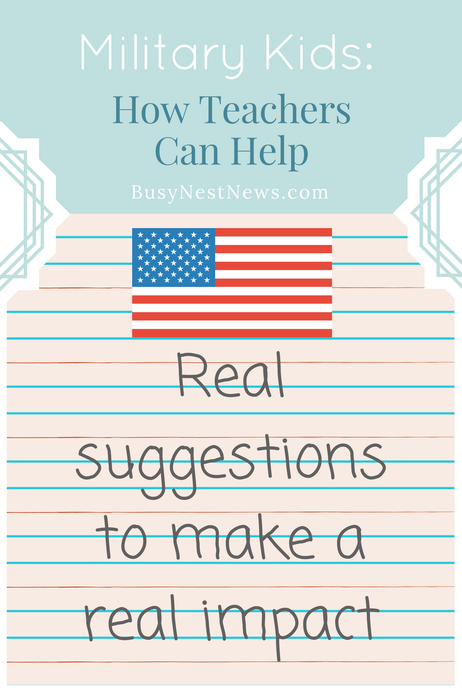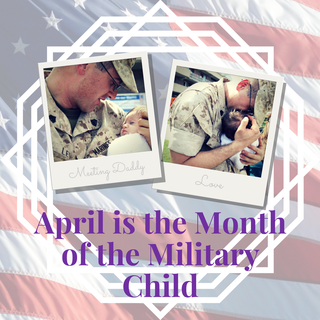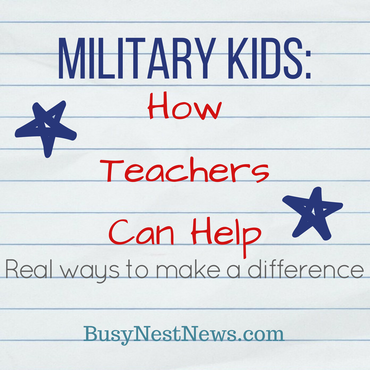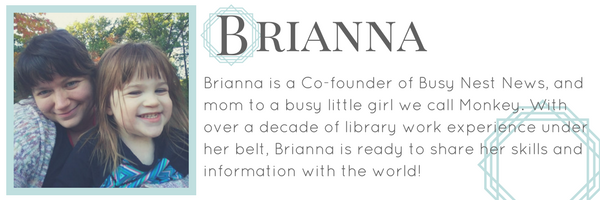|
by Brianna In which Brianna details real ways teachers can make an impact in the lives of military kids, whether they have any in their classroom or not. Teachers, this one is for you! Did you know that here in the United States, April is the Month of the Military Child? You’re probably thinking (if I dare to guess) “That’s awesome! I imagine Military Kids have unique challenges, and deserved to be thanked for the sacrifices they make.” And you’re right. Then you might think “But I don’t have any military kids in my class, so there isn’t anything I can do.” And that’s where you’re wrong. According to the Military Child Education Coalition, the number of children whose parents are active duty, reservists or veterans stands at two million strong. Only 2% of their school-aged kids attend military (DODEA) schools. Chances are, you’re more likely to have military-connected kids in your class than you think. Military-connected children include those whose family includes someone who is or was a member of our armed forces, either as active duty or a reservist. Many active duty families will live on or very near a base, and you know if you’re in one of those areas. But some families are on special duties away from a base, or their family has chosen to remain in a civilian community for one of many reasons (usually physically separated from their service member). Also, we can’t forget that there are reservists and veterans in every community, and even though those designations sound pretty low-key, that isn’t necessarily the case. I’ve known reservists who have deployed several times more than a lot of active duty troops. Likewise, a veteran who has separated from the military will often have interactions with the military and be dealing with medical issues as a result of their service. Their family members take on the role of caretakers to varying degrees. If your community is composed primarily of immigrants or children of immigrants, do not assume that they have no affiliation with the military, either. Green Card holders can get their citizenship fast-tracked upon completing basic training, and I met many families who speak little-to-no English in the home while I worked with the military. So now that I’ve dropped a lot of knowledge on you, what can you, as teachers, do for these kids? That’s going to depend a lot on what you’re working with in your class. I suggest finding a subtle way, perhaps on a first day of school form, to ask who in the class might have a family member that is or was in the military. If that yields zero military-connected kids in your class, there’s still a lot you can do! The military-civilian divide is unbelievably huge. As a teacher, you’re well placed to run some empathy-building activities with civilian kids. This is crucial to our success as a nation, because (please pardon the tiny civics lesson) the military is under civilian control. Military families’ lives are dramatically affected by the way the people and lawmakers of the United States vote. The bigger the gap between military families and civilians, the more we will see inappropriate use of forces and funds. It can become easy for Americans to support wars when it won’t be “their” families fighting in them. Likewise, voters who don’t understand the military will support cutbacks that threaten programs who work to support military families, or earmarks for equipment or facilities that the military does not need or want, which nets the same result. So have your kids make cards or raise funds to support troops and their families. In history lessons and current events, ask them what it would be like to be in the shoes of the people fighting in those wars, or their families’. A great example for the 4th-8th grade crowd is this lesson plan American Girl put together to go with their movie and books about Molly. It would be a fun “break” for the kids that still involves learning. I’m not a teacher, but I would probably deploy this plan right before a big break, or to wrap up a lesson on WWII. https://www.americangirl.com/wcsstore/AG/images/Corporate/ParentsAndTeachers/Molly.pdf Truly, though, building empathy for service members and their families will go a long way to bridge the gap. And I mean real empathy. Teaching them to say “thank you for your service” the way one says “God bless you” after a sneeze is just as appreciated...and just as useful (in case I’m unclear, it’s a nice thing to say, but doesn’t go a long way to help). So what about the teachers that do have military-connected kids in their class? The immediate thing you can do is ask them and their parents what they need, as you would any child or family working around special challenges. Don’t be weird about it, or look at their parent like a ticking time bomb. Just listen and make the accommodations they need, and accept it if there aren’t any for the time being. I did some research on what teachers can do in the long run, and I’m really excited to share this next resource.
The Military Child Education Coalition is a non-profit that aims to make life better for all military kids in any education system. They have a whole series on TedEd to educate educators about the challenges facing military children at all ages, and they include useful action points. Their website (http://militarychild.org) is chock full knowledge and resources for military kids, their parents, and educators. The best part (I think) is that they offer an Annual Training Seminar for teachers. The 2018 seminar is scheduled for July 23-25 in Washington, D.C., and you can get some of those mandatory continuing education credits knocked out by attending. If you’re interested in registering, you can go here (http://www.militarychild.org/news-and-events/national-training-seminar2). It sounds like an amazing experience that is targeted right at teachers and administrators who want to better anticipate the needs of the military kids in their schools. Teachers, this is just for you! You are not on the periphery at this event. The Military Child Education Coalition KNOWS that YOU want to make a difference in these kids’ lives, and moreover they know that you CAN. I really hope that this article helps teachers with some concrete action points. There are more military families in your community than you realize. You spend more time with our kids in a day than we do. We just want what any parent wants, for their kids to have quality educational experiences and great memories from their school days. Help us by bridging the gap between our families and their classmates’, and learn from the pros what military kids need from their schools. As a parent who cares, when I meet teachers who care, I know we’ll make a great team.
0 Comments
Leave a Reply. |
AuthorsAriel and Brianna are friends who met while working in a library. Now they collaborate to develop life-enhancing book club experiences. Archives
June 2023
Let's keep in touch!Categories
All
|












 RSS Feed
RSS Feed